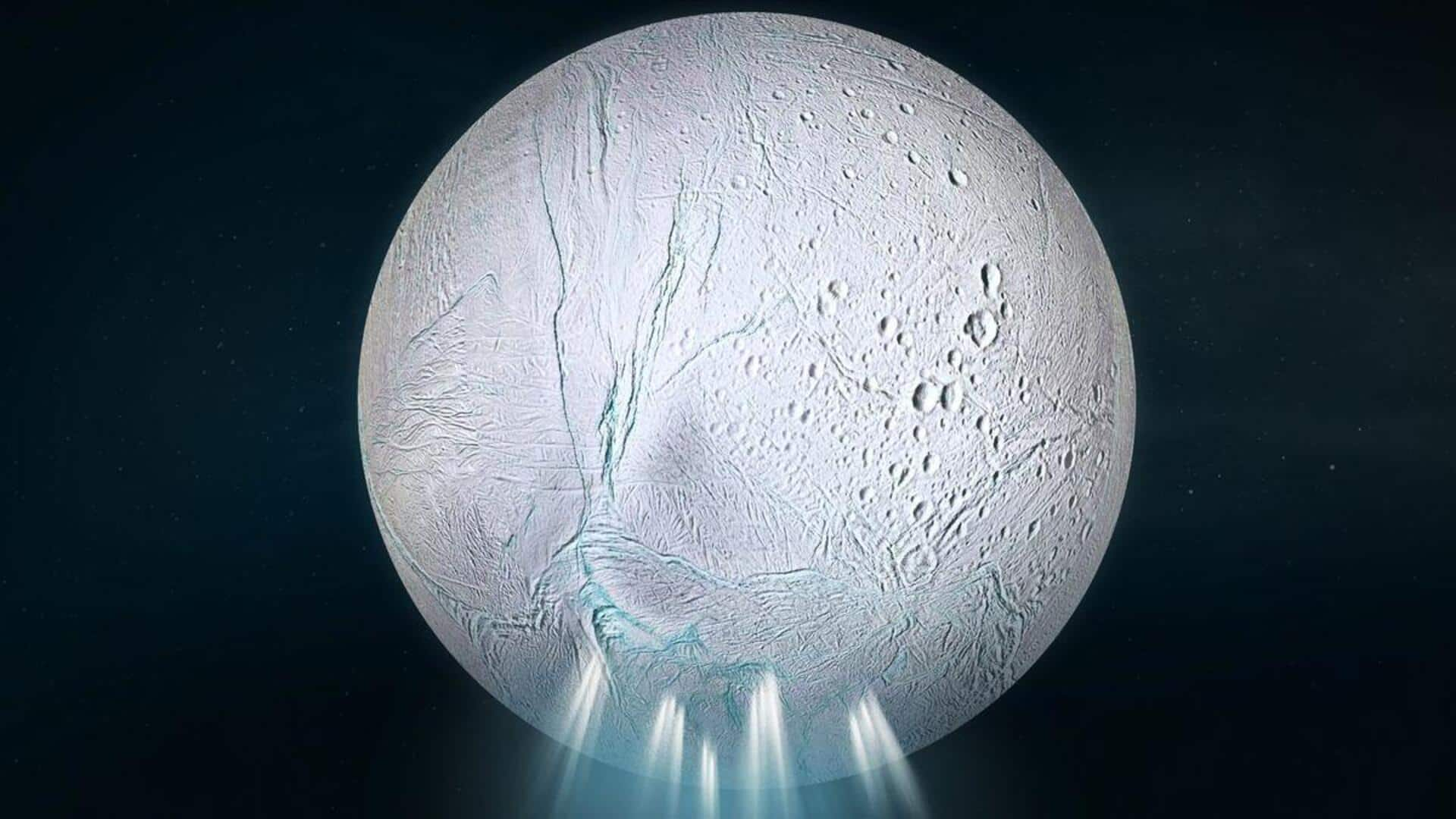
These icy moons in our solar system could support life
What's the story
Recent research has revealed that some of the small icy moons in our solar system, such as Enceladus and Miranda, may have boiling oceans hidden beneath their thin ice shells. The study indicates that even though these oceans might be boiling near the surface, their deeper regions could still be calm enough to support life. This discovery challenges previous assumptions about potential extraterrestrial habitats.
Boiling mechanism
How can boiling oceans exist on moons?
The boiling of water on these moons occurs when heat thins the icy shell, reducing pressure and allowing water to boil at freezing temperatures (around 0°C). This phenomenon can lead to strange surface features and even entrap gases in ice structures known as clathrates. Unlike larger moons that crack due to pressure changes, these smaller ones allow their oceans to bubble quietly without splitting open.
Life potential
Implications for extraterrestrial life
The study's authors propose that the existence of "boiling" worlds shouldn't be dismissed when searching for alien life. The findings suggest that even in extreme conditions, such as boiling oceans beneath thin ice shells, there may be pockets where life could thrive. This expands our understanding of where to look for signs of extraterrestrial organisms and highlights the resilience of life in harsh environments.
Upcoming exploration
Future missions could test these theories
The study highlights icy moons with thin ice shells as prime targets for future astrobiology missions. The researchers hope that upcoming missions to moons such as Enceladus and Europa will be able to test their theories. Spacecraft could probe ice thickness and ocean dynamics, potentially revealing whether life exists under volatile ice layers. This research opens new avenues for understanding life's potential beyond Earth.